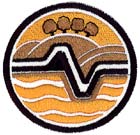About the dances we do
Devil's Dyke Morris Men mainly perform dances which originated in the Cotswold area. 'Morris' generally is used to cover dances with a formal or ritual function, traditionally formed by a small practised set of same-sex dancers, usually male. This contrasted strongly with social dances which were performed in more relaxed circumstances by both sexes.
The Cotswold Morris is characterised by a mixture of dances with either handkerchiefs or sticks. Other forms of dance which come under the heading 'Morris' are, for example, Border Morris (English/Welsh borders, blackface), longsword (mainly Yorkshire), rapper (Durham), and clog (Lancashire/Yorkshire).
Cotswold Morris men call dance styles by the names of the original villages. So when you hear us announce a dance 'from Fieldtown' or 'in the style of Bledington', this is what we are referring to. The main dances done by Devil's Dyke at the moment come from Adderbury, Ascott-under-Wychwood, Badby, Bampton, Bledington, Brackley, Ducklington, Fieldtown (Leafield), Headington, Hinton, Ilmington, Lichfield and Sherborne, with the occasional example from Eynsham, Longborough and Wheatley.
Each village style has its own characteristics, although this may not always be evident! But there are also very many dance figures, steps and movements common to all of them. Devil's Dyke try to maintain a high standard of dance and keep the styles separate as best we can. Each practice season we concentrate on a couple of traditions for the first two-thirds of the season and then refresh ourselves on the others.
An accessible summary of dances and other aspects of the Morris will be found in the booklet The Morris Tradition published by the Morris Ring.
